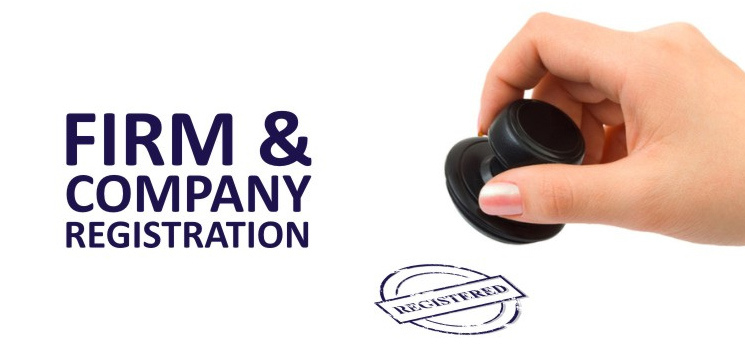
10 Legal tips for Start-ups by Adedunmade Onibokun

are springing up in Nigeria faster than we can say “Jack Robinson”. The entreprenual
power, wealth and opportunities in Nigeria are so enormous, the sky is big
enough for everyone to fly and that’s why international companies are breaking
legs just to get a foot in.
beyond having an idea, implementing and executing your business plans and
strategies with adequate legal and commercial advice is another step in making
your business a success. I suggest you pay attention to the following legal
tips as it may be what makes or breaks your business.
Registration
idea and you have picked the perfect brand name for your enterprise. It is
advisable that you register that business name or at least find out if it is
available for registration at the Corporate Affairs Commission before you roll
out your campaign. I have a friend who had picked a wonderful name for his
business and had gone out to print material and represent himself to local and
international clients with the name. He was really upset when informed after
conducting a search at CAC that the name he chose was not available for registration
because the name had been pre-registered. He had to spend so much money
changing his brand and re-introducing the new brand to clients. Therefore,
register your business and secure your brand name as soon as you can.
Capital
allocating shares in their companies sometimes do not provide for investment
shares which can be sold to would be investors. Also, some make the mistake of
having an inadequate share capital for the type of business they are into. For
instance, registering a company with 1 million Naira share capital is fine if
your business catering, however, if you want to start a sport’s betting company
or a tech firm that intends to build phones and other gadgets, your share
capital should be about 30 million.
incorporation matters
there are a number of post-incorporation obligations which your company must
observe. For instance, filing your tax returns and notifying CAC of any change
in your status. This is why The Companies and Allied Matters Act mandates every
company registered in Nigeria to have a company secretary who is usually a
legal practitioner.
Issues
regulated by government agencies and policies. For instance, if your business
is the making of food and beverages or medicine, it is mandatory that you
obtain a NAFDAC registration number for each product. Also, your business model
may involve certain transfer of technology between countries, in such situation
you will be required to get a license from the National Office for Technology
Acquisition and Promotion (NOTAP). It is important that you identify the
relevant government agencies involved in your sector and ensure strict
compliance with all policies. Doing otherwise may result in sanctions which may
affect your business badly. The
consequences for not having your legal house in order can be expensive.
that allows you legal recourse against a client who refused to pay. Also ensure
that your contracts clearly state the rights and obligations of each party to
the contract. This will prevent your company from liability that is unwelcome.
Also carefully peruse the clauses in any agreement before signing them and do
not hesitate to seek legal clarification from a lawyer on any clauses you may
not understand. It is generally advisable to allow a lawyer read all your
contracts as terms may have a different meaning to a lawyer than a lay person.
This will save you millions of naira in the long run and it protects you from
disputes in the future. You need to have something in writing to outline terms
and conditions. This protects both you and the person or company with whom you
are working
essential. Taking the time to get your paperwork in order ahead of time pays
off big as your company grows, so make sure that you get all of your initial
legal work correctly pulled together and carefully maintained. This includes
offer letters, confidentiality agreements, option agreements and, most
importantly, your initial customer contracts. It is usually prudent to have an
off-site storage for copies of all your files. In case of loss, this will help
you retain all valuable piece of documentation.
patents and trademarks before going into business. Don’t get two years into
your business and then find that you have to change the name of a popular
product or even your entire company because someone has just realized that
you’re using a variant of their name and wants to sue you. This is similar to
ensuring your company name is registered.
a Trustworthy Lawyer
a good and trustworthy lawyer is as important as every other tip for startups.
Your lawyer could be the saving grace that prevents you from making a really
bad company decision. It is also important to educate yourself on legal issues
in your industry. Legal fees could end up being a large upfront investment when
you start your business but the advantages are immense.
your trade secrets
including a formula, pattern, compilation, program, device, method,
technique or process, that derives its economic value from not being
generally known to the public and is protected by reasonable efforts to
maintain its secrecy.
customer lists, process methods or other formulas that you’ve developed,
they can be protected as trade secrets as long as you use reasonable
efforts to keep them secret. This could include storing the information in
a password protected place, only disclosing the information on a need-to-know
basis and making sure the information isn’t posted in a public place.
and procedures
your workplace policies and procedures to protect your business. In order to
protect yourself, ensure that your polices restrict employee abuse (accessing
restricted websites or sharing confidential information).
Onibokun
Partner of Adedunmade Onibokun & Co., a corporate commercial law firm
located in Lagos, Nigeria.




